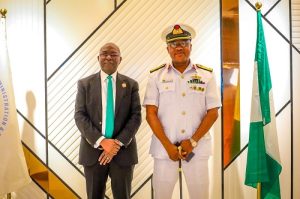MAN Charges African Govts to Check Dumping, Trade Malpractices as AfCFTA Takes Off
As the implementation of the African Continental Free Trade Area (AfCFTA) kicks off, the African governments have been urged to ensure that they used their political will to check dumping and other trade malpractices that will mar the trade scheme.
The President of the Manufacturers Association of Nigeria (MAN), Mr. Mansur Ahmed in an interview with ARISE TV said governments in the region should be ready to check those who want to sabotage the scheme through trade malpractices, such as dumping of goods made outside Africa.
Ahmed said, “AfCFTA will build Africans capacity to manufacture and change the narrative of African economy and give Africa a stronger voice and positioning in the global economy as we go on.
“I am confident that there will be a tremendous opportunities for growth and development for each and every one if the countries that signed this agreement are willing to come together to make it a success. But this cannot come without challenges.
“Are we ready to do the things we have to do to address the possibilities of dumping? First of all, we can’t be 100 per cent ready. But I believe that the first thing, which is important is to recognise that we have to do certain things to create the capacity needed to engage in this kind of trade. The dumping issue frankly is a matter of political will. Do our governments and political leaders have the political will to agree on those things that we have to do? For instance, to ensure that we do not allow dumping to take place. The regulations we put in place for imports are regulations that all the countries agreed on. But the difference is that while some countries will ensure that these regulations are complied with, others unfortunately will not do so.
“Let me take the issue of dumping for instance. The key issue is that if you have imports coming into your country, you have to make sure that they meet the qualities required under the agreement and are not brought into your country without compliance of necessary regulations such as customs duties. If we do this, we will create the environment whereby goods that are able to come in do not necessarily displace our manufacturing capacities.
“You will recall that the Nigeria’s government had to shut down borders to stop the dumping of rice and so on. The reason for that is that if our neighbours had agreed to comply with regulations in place, the ECOWAS Trade Liberalisation Scheme (ETLS) set up to prevent that kind of dumping, perhaps there will be no need to shut down our border.
“So, our political leaders must have the political will and determination to ensure that whatever regulations we put in place within our country and across the continent, are regulations that will work and are regulation that support our economic growth processes.”
The President of the Manufacturers Association of Nigeria (MAN), Mr. Mansur Ahmed in an interview with ARISE TV said governments in the region should be ready to check those who want to sabotage the scheme through trade malpractices, such as dumping of goods made outside Africa.
Ahmed said, “AfCFTA will build Africans capacity to manufacture and change the narrative of African economy and give Africa a stronger voice and positioning in the global economy as we go on.
“I am confident that there will be a tremendous opportunities for growth and development for each and every one if the countries that signed this agreement are willing to come together to make it a success. But this cannot come without challenges.
“Are we ready to do the things we have to do to address the possibilities of dumping? First of all, we can’t be 100 per cent ready. But I believe that the first thing, which is important is to recognise that we have to do certain things to create the capacity needed to engage in this kind of trade. The dumping issue frankly is a matter of political will. Do our governments and political leaders have the political will to agree on those things that we have to do? For instance, to ensure that we do not allow dumping to take place. The regulations we put in place for imports are regulations that all the countries agreed on. But the difference is that while some countries will ensure that these regulations are complied with, others unfortunately will not do so.
“Let me take the issue of dumping for instance. The key issue is that if you have imports coming into your country, you have to make sure that they meet the qualities required under the agreement and are not brought into your country without compliance of necessary regulations such as customs duties. If we do this, we will create the environment whereby goods that are able to come in do not necessarily displace our manufacturing capacities.
“You will recall that the Nigeria’s government had to shut down borders to stop the dumping of rice and so on. The reason for that is that if our neighbours had agreed to comply with regulations in place, the ECOWAS Trade Liberalisation Scheme (ETLS) set up to prevent that kind of dumping, perhaps there will be no need to shut down our border.
“So, our political leaders must have the political will and determination to ensure that whatever regulations we put in place within our country and across the continent, are regulations that will work and are regulation that support our economic growth processes.”





